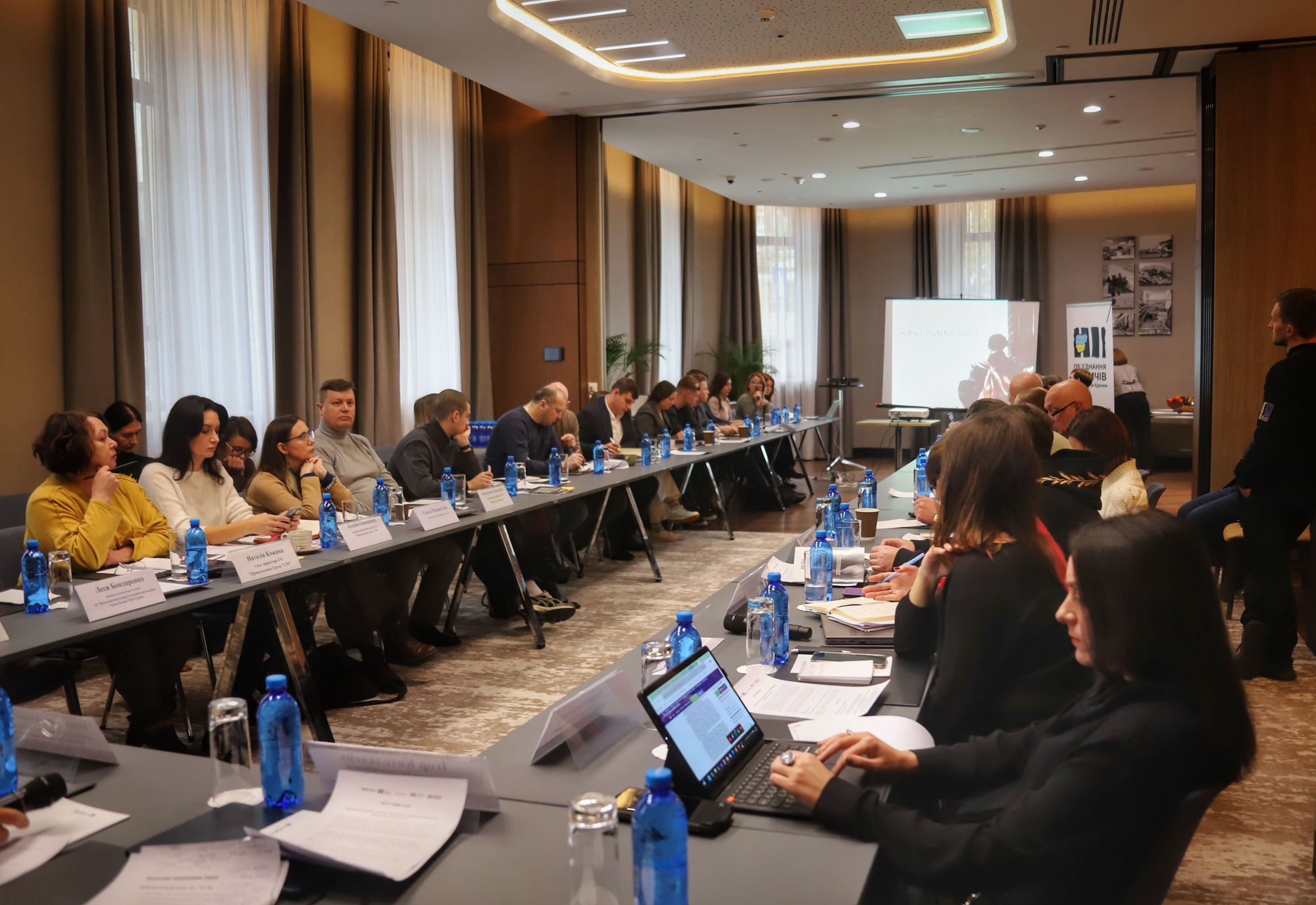

“Either a hostage or a hero. If a person was a victim of war, the commission has the right to refuse,” said the moderator of the first part of the discussion, Mykhailo Savva. This thesis best reflects the effect of Law No. 2010-IX, a document that was supposed to protect civilians deprived of their liberty as a result of Russian aggression, but instead often works selectively. According to the law, persons who have been found to have been illegally deprived of their liberty have the right to state assistance, but the criteria for granting the status remain unclear.
The commission considering the applications operates with the concepts of “hostage,” “person who acted in the interests of the state,” or “civilian victim” without a clear methodology. As a result, people who were actually victims of war are often refused – even despite clear evidence of their illegal imprisonment.
The round table “Three Years of the Law on the Protection of Civilians in Russian Captivity: How to Make Support Effective”, organized by the NGO “Association of Relatives of Political Prisoners of the Kremlin” in cooperation with the Coordination Headquarters for the Treatment of Prisoners of War and the Office of the Ombudsman of Ukraine, was held recently in Kyiv. The event brought together representatives of state bodies, human rights organizations, civil society and released prisoners to analyze the three-year practice of applying Law No. 2010-IX, identify its gaps and determine areas for improving state support mechanisms. In total, 62 participants from 35 organizations took part in the event.
Among them were both public initiatives and state institutions. The head of the NGO “Association of Relatives of Political Prisoners of the Kremlin” Igor Kotelianets opened the round table. He emphasized the need for changes to the current law and the problems in the work of the commission. Kotelyanets emphasized the scale of the disappointing statistics of refusals for civilians: “About 30–50% of applications to the Commission for establishing the fact of illegal deprivation of personal liberty from civilians were refused.” He also cited data from his own organization confirming these problems: “70% of appeals to the legal aid service of our Association are requests for help after the commission’s refusal, to establish the fact of deprivation of liberty or to collect documents.”
Kotelianets emphasized that the current criteria of the law are outdated and do not take into account all victims: “The law was adopted a month before the full-scale invasion – and then civilians who were detained in Crimea or Donbas were defined as political prisoners or civilian hostages. Today, this no longer corresponds to the realities.” He paid special attention to the effectiveness of the commission's work and the training of its members: "Commission members must be supported and trained - so that they know what evidence is, how to work with it, and how to independently obtain the necessary documents. They must understand how to assess a person's political motive - not based on whether they were engaged in public or political activities, but on the political motives of the occupier's actions towards them. People are not obliged to be human rights defenders, riot policemen, or throw themselves under tanks during the occupation in order to be recognized by the state and receive assistance. Without this understanding, the commission will not be able to make fair decisions, and people who have already experienced "captivity" will continue to remain without proper protection."
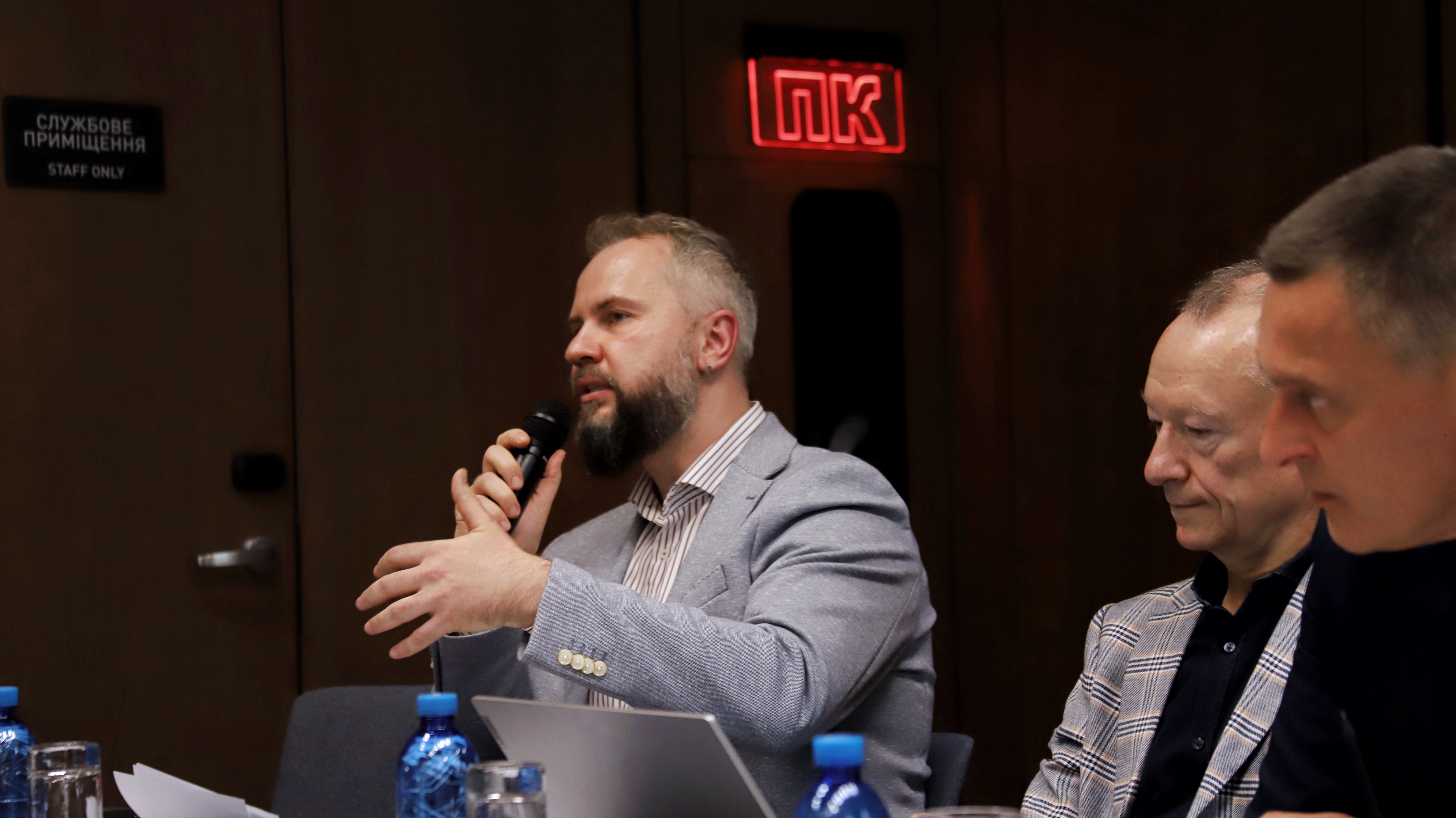
Yuriy Kovbasa, the representative of the Commissioner for Human Rights in the system of security and defense sector bodies, recalled that Law No. 2010-IX was adopted before the start of the full-scale invasion (in January 2022) and today does not correspond to the realities faced by civilians who survived captivity. He said that to eliminate the gaps, the Coordination Headquarters team has developed a draft resolution that should introduce primary state assistance to those who have not received status or have been left outside the scope of existing support mechanisms. “We have developed a draft resolution that provides for primary state assistance to people who, for one reason or another, have not received status and have not been provided with support. The document is already being finalized in the Coordination Headquarters system and should be submitted for approval in the near future,” Kovbasa explained. He also emphasized that the process of submission, consideration and decision-making should be transparent: “People who receive a refusal, in most cases, do not understand why. "We must ensure that every applicant sees the reasoning and can receive a clear explanation of the commission's decision."
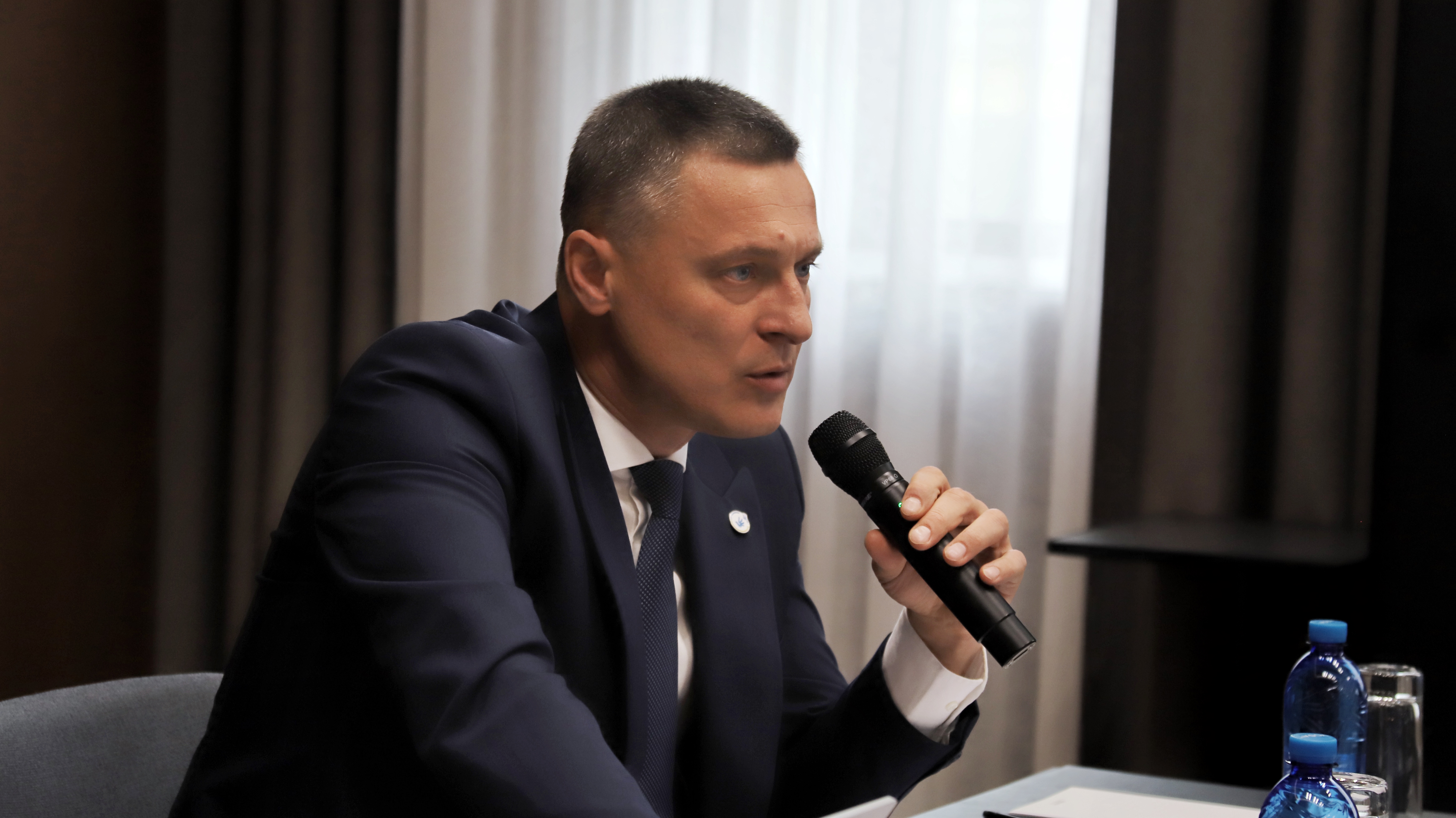
During her speech, the head of the legal department of the NGO “Human Rights Group “SICH”” Kseniya Onyshchenko drew attention to the contradictions in the norms of the law and the shortcomings in its application by the commission. She emphasized that the current regulation of the commission does not comply with the Law of Ukraine “On Administrative Procedure” and allows commission members to independently interpret what documents are needed to establish the fact of deprivation of liberty. “There are cases when two persons with identical documents and circumstances receive opposite decisions, and the commission refers to certificates that do not exist or are not provided for by law,” Onyshchenko noted. She also emphasized that the commission does not execute court decisions. The voting procedure, in particular the possibility of abstention, contradicts the tasks of the body. “The protocols that were obtained show: 1 – against, 0 – for, 11 – abstained. When a decision is made to establish the fact of deprivation of personal liberty, abstention from voting is unacceptable – it violates the constitutional rights of individuals,” the expert explained. Onyshchenko stressed the need for changes that would allow all persons legally residing in Ukraine to submit documents and receive recognition of deprivation of liberty, regardless of citizenship. She noted that this would increase the transparency, accountability, and fairness of the commission's work.
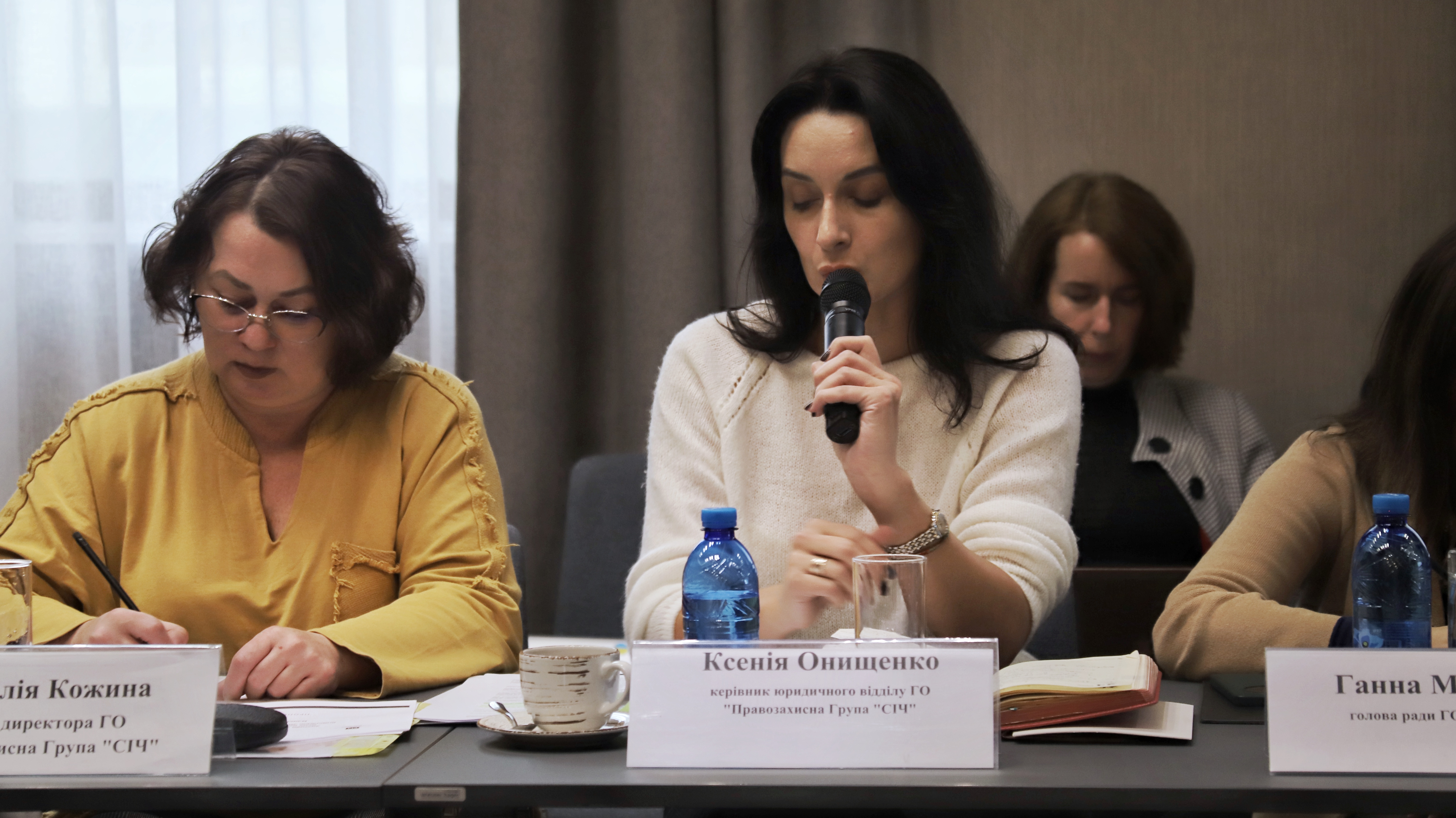
In her next speech, the head of the analytical department of the Ukrainian Helsinki Human Rights Union, Aksana Filipishyna, drew attention to the introduction of a number of amendments to Law No. 2010-IX in order to eliminate contradictions and inaccuracies in wording that affect the work of the commission on recognition of the fact of deprivation of personal liberty. She emphasized that first of all, it is necessary to clarify Article 3 - to determine the procedure for selecting public and international organizations to the commission. “Today, the law provides for the participation of representatives of such organizations, but does not contain any criteria for their selection - neither by statutory activities nor by work experience. This creates risks of opacity and even corruption prerequisites,” Filipishyna noted. Also, according to her, it is worth revising Article 4, which defines the concept of “family member” of a person deprived of liberty, because the law currently refers to the Family Code, which has an excessively broad interpretation. “The commission must clearly understand who it recognizes as a family member in order to avoid accidental refusals and double interpretations,” the expert explained. She especially emphasized the need to clarify Article 7, which regulates the issue of one-time cash assistance in the event of the death of a person who has been found to be deprived of liberty. According to Filipishina, the current wording forces relatives to choose between assistance under this law and other social benefits, which creates legal contradictions. She emphasized that changes to these articles should be accompanied by a review of the composition of the commission - so that its work becomes more professional, transparent and fair to those who have survived imprisonment.

An important point was made by the deputy head of the NGO “Civilians in Captivity”, a released Crimean political prisoner, Kostyantyn Davydenko, who shared his own experience and problems of practical application of the law. He emphasized that the law, designed to protect civilians, in its current form does not take into account the real circumstances in which people find themselves in Russian captivity and does not guarantee automatic recognition of their status. “I am not a lawyer, so I will speak as a person who directly uses this law, as a recipient of the payments and benefits provided by it. If a person is in the occupied territory and is arrested, even on formal criminal charges, can we consider that this so-called court is objective and impartial? I sat with the guys who were convicted on trumped-up charges of collaborating with Ukraine. They were tortured, forced to confess, but when they could not prove their guilt, they were simply left in the colony under far-fetched criminal articles.” Davydenko emphasized that even those who were unable to prove their support for Ukraine in a documentary way actually remain hostages because of their civic position. "If a person passed on information to Ukrainian services, reported on the movement of occupation units, they were already acting in the interests of the state. If they were tortured for this, then they are, in essence, a defender of Ukraine. Therefore, the system must recognize such people and provide them with support, regardless of the formal grounds on which they were held. And, of course, the state must create a basic level of assistance to everyone who has gone through captivity."
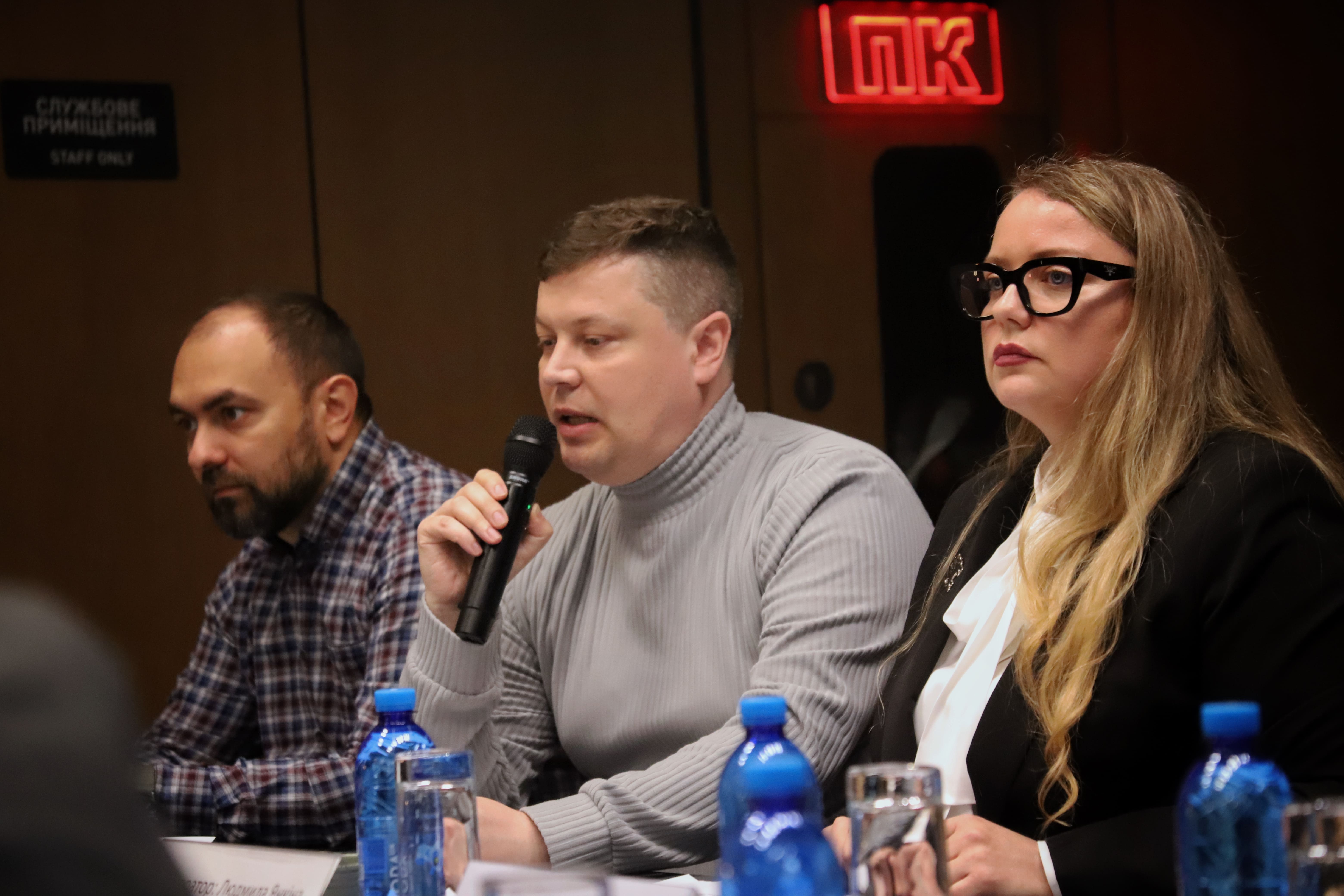
Among the participants of the roundtable, Daniil Bulgakov delivered his speech. After two years of studying in the territory controlled by Ukraine, he returned to Donetsk to care for his sick grandmother, where he was detained on charges of having ties to the SBU. He spent almost three years in the basements of the so-called “Ministry of State Security of the DPR” and the “Izolyatsia” prison, undergoing torture and forced detention. He was released only on June 7, 2023, under a pledge not to leave. Daniil emphasized that the legislation that is supposed to protect civilians in captivity does not sufficiently take into account real human rights violations and requires urgent changes. “I had a certificate from the FSB about illegal detention, but even with such a certificate, people do not always receive status. The law needs to protect the rights of civilians more, and not be based on a heroic position or protecting the state – this is what the Ministry of Defense and the SBU are for. In captivity, basic human rights are violated, torture, illegal detention, deprivation of liberty, lack of personal rights occur. The commission has become too biased and is not always able to understand the real circumstances in which people were. Amendments to the law must be adopted immediately, because civilians have begun to return from the exchange, and their rights must be guaranteed.
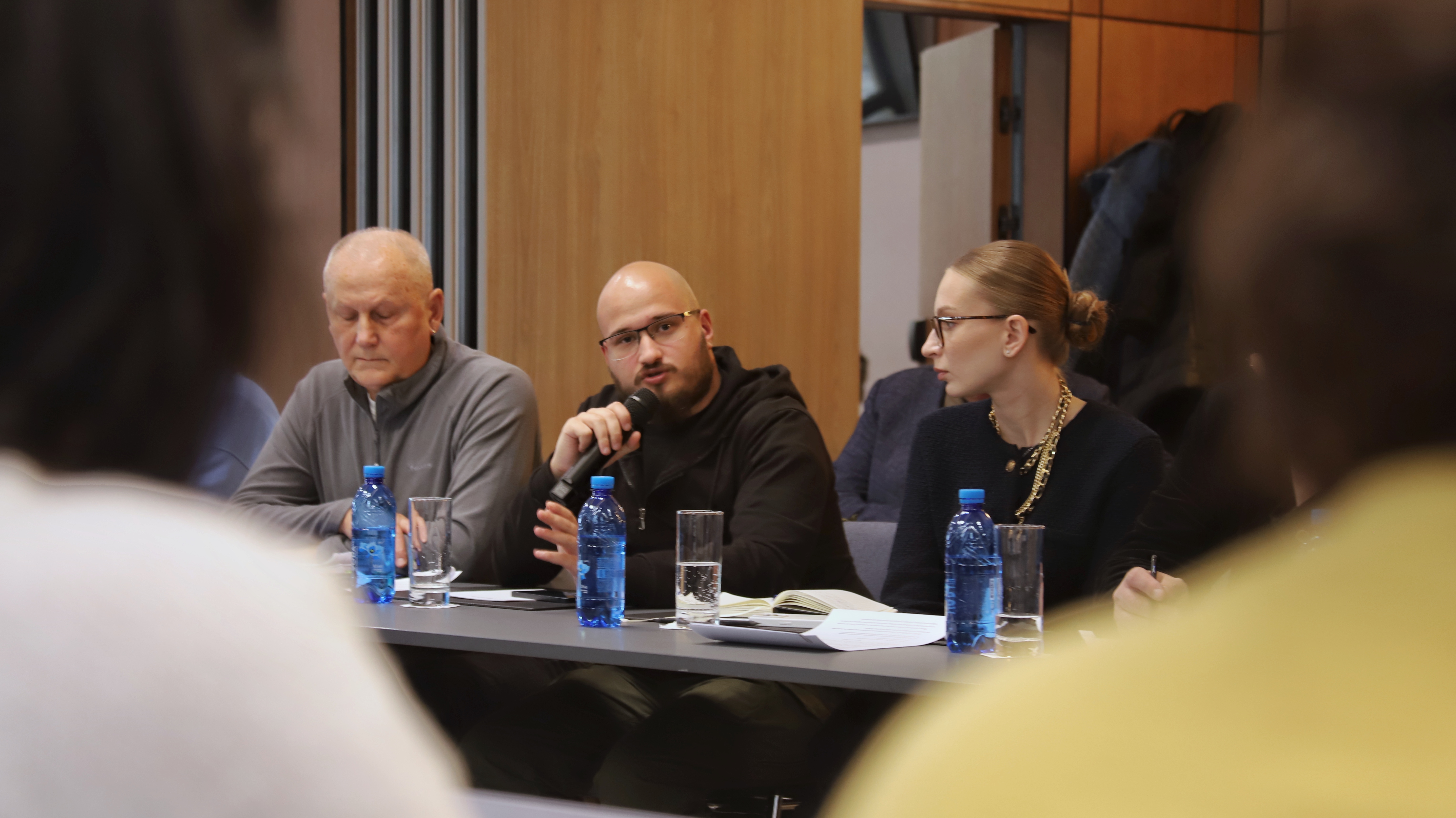
An important addition was the speech of the People's Deputy of Ukraine Anna Purtova, who emphasized the readiness to support legislative changes and act as a mediator between the public and the parliament. She emphasized her own experience of working with military personnel who were in captivity and civilians: “Thank you very much, why am I here – because it so happened in life that I began to deal with military personnel who are ours in captivity and help them with various issues. But there are also civilians.” The People's Deputy drew attention to the rapid accumulation of problems after the release of people from captivity. She called for joining forces and proposed a mechanism for joint work: “I propose to create a working group – to add everyone who is ready to work specifically on the legal side of the documents. I will throw the first developments that we have today – they are definitely not enough. Let's work together on this document and then register and move it forward.” Purtova emphasized that the effectiveness of the changes requires the participation and support of the community: “No one will move it for you. We need media, public support. Because when you don’t see a person in person, it’s very easy to refuse.” She also emphasized the importance of international cooperation: “It’s very important to work on international platforms. In particular, working with international organizations is very important.”
Summing up the discussion, the participants noted that the legislation needs urgent improvement, especially in the area of transparency of processes, a clear definition of the Commission’s powers, and guarantees for civilians who suffered Russian captivity. The need to create a commission with a different composition, ensure openness in decision-making, and provide state support to all victims without exception, so that the law can actually work to protect civilians, was emphasized.
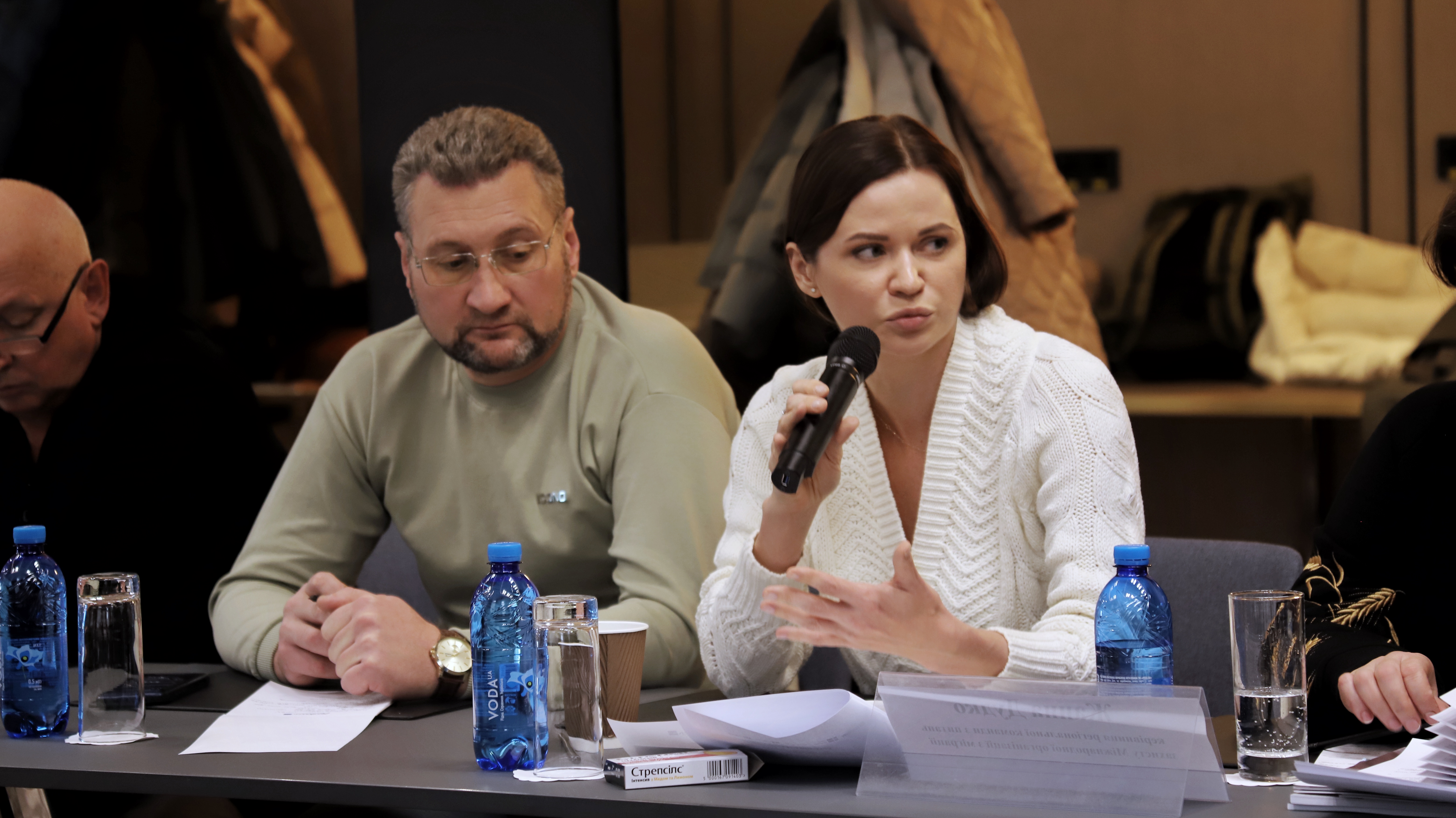
The next part of the large discussion was devoted to the topic of comprehensive support for people after release - from medical and psychological rehabilitation to social and everyday adaptation. The discussion touched on both operational interventions in the first days after release and long-term support mechanisms - in particular, psychological assistance, medical diagnostics and social reintegration. The moderator of this part of the conversation was Lyudmila Yankina, Chairman of the Board of the NGO Civis Fortis - Foundation for the Protection of Civil Society.
Kostyantyn Davydenko reminded that the main problem after return is not only physical injuries, but also the destruction of the personality and fear, which require priority psychosocial work and consistent support in the first weeks and months after release. “Being in captivity is not only about being detained and beaten. Beating is, of course, painful and very unpleasant, but this is not the main problem that arises after captivity. Because when you are there and the people who were there too, they know what I am talking about. All the institutions that deal with prisoners there have a common goal. And all the actions that they perform, starting from what clothes they give to prisoners, ending with how they beat them and what they cook them with, all this is aimed at one goal - to break and destroy a person.
"The topic of recovery after release covers not only medical and psychological rehabilitation, but also broad social support - from providing basic needs to helping them return to everyday life. Volodymyr Khadzhinov, head of the expert group of the Directorate for the Development of Social Services of the Ministry of Social Policy, spoke about the current mechanisms for assisting civilians who have survived imprisonment and about the introduced changes in legislation that provide them with social status and payments. In his speech, he focused on the main points of Resolution 396, adopted on March 15. “Now all persons who have been in places of deprivation of liberty have the status of a special category and the right to payments from the state budget. They can receive support for 12 months after release, including an accompanying person, as well as access to rehabilitation facilities and support services.” He explained that social services are provided both during a person’s stay in rehabilitation programs and after returning home, taking into account physical and psychological needs. Particular attention is paid to coordinating assistance with regional funds and local authorities so that support is available regardless of where the released citizen returns. This allows for the formation of a sustainable system of assistance for those who have survived captivity and guarantees a minimum level of support at all stages of recovery.
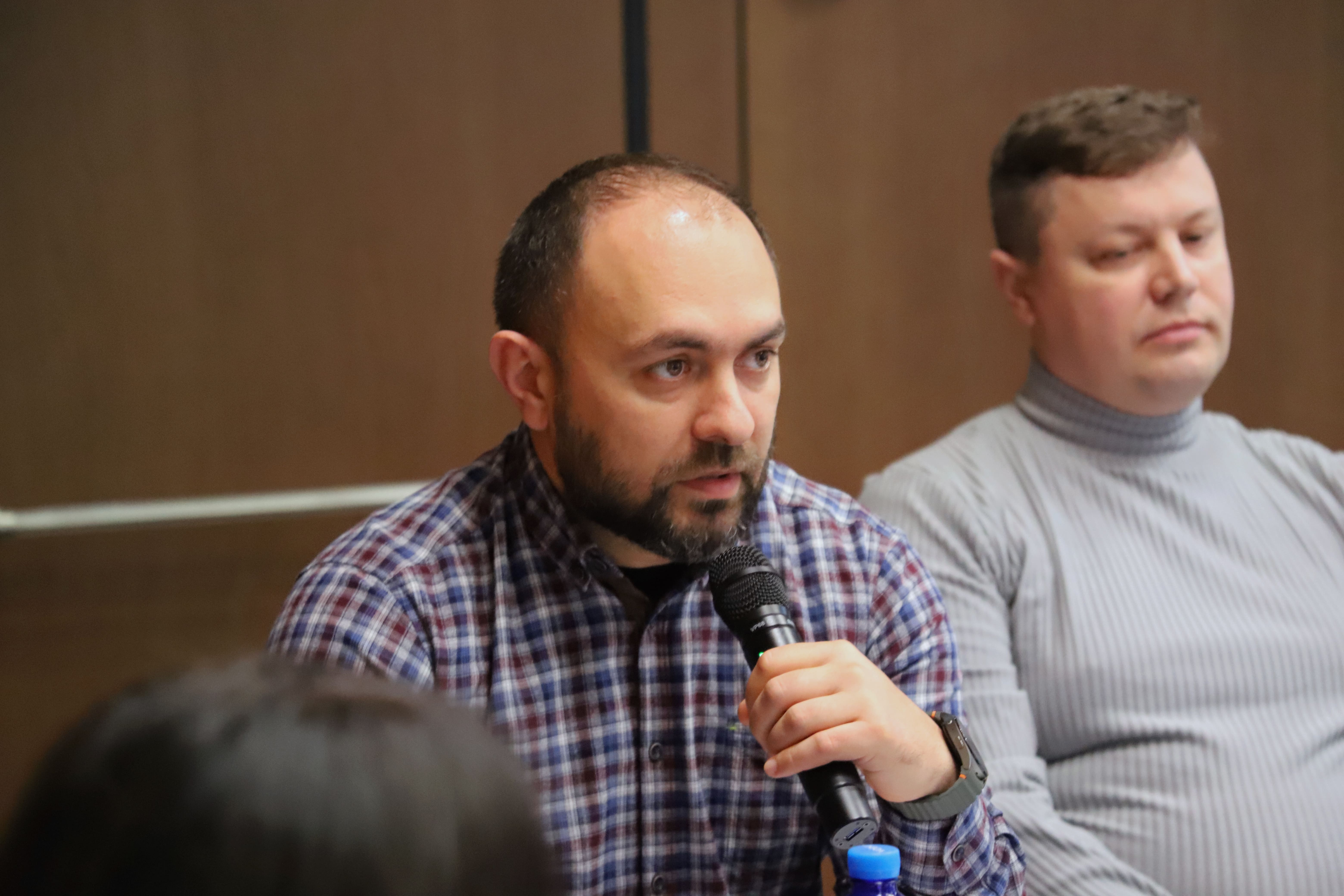
Rehabilitation after release from captivity is not just medical care, but comprehensive support that includes psychological, social and legal assistance - from restoring documents to providing housing and basic needs. Clinical psychologist and psychotherapist Lesya Bondarenko told how the Lisova Polyana Mental Health and Rehabilitation Center forms a multidisciplinary team, where doctors, physical therapists, psychologists and social workers work. The first stage involves assessing needs: from medical to social and determining priorities for the patient's rapid recovery. Then a case manager is involved, who coordinates the entire process, accompanies the person and ensures that urgent issues are resolved through the Free Step platform. This approach allows for effective adaptation of military practices for civilians, taking into account the specifics of their needs and the long period of captivity. “We strive for every person to have access to comprehensive support after release – psychological, medical, and social – and to be able to receive help even online if they are in another city,” explained Lesya Bondarenko.

Oleg Gushchyn, a representative of the Coordination Headquarters for the Treatment of Prisoners of War, explained that military personnel have a mandatory support model after captivity. Civilians are given the opportunity to choose one of the options in accordance with the law. They are not given the opportunity to undergo the entire complex of rehabilitation measures. Because of this, civilians often ask questions about where and to whom to turn for help. To close this gap, a unified support model was proposed - a tabular "guide" of services, which groups social, medical and rehabilitation measures and indicates responsible executors. The guide should become a tool for case managers and local services to provide proactive assistance. "The fundamental difference in legal status is that military personnel are in public service, while civilians receive discretionary powers, so a table-guide of all social and medical services is needed," Oleg Gushchyn noted.
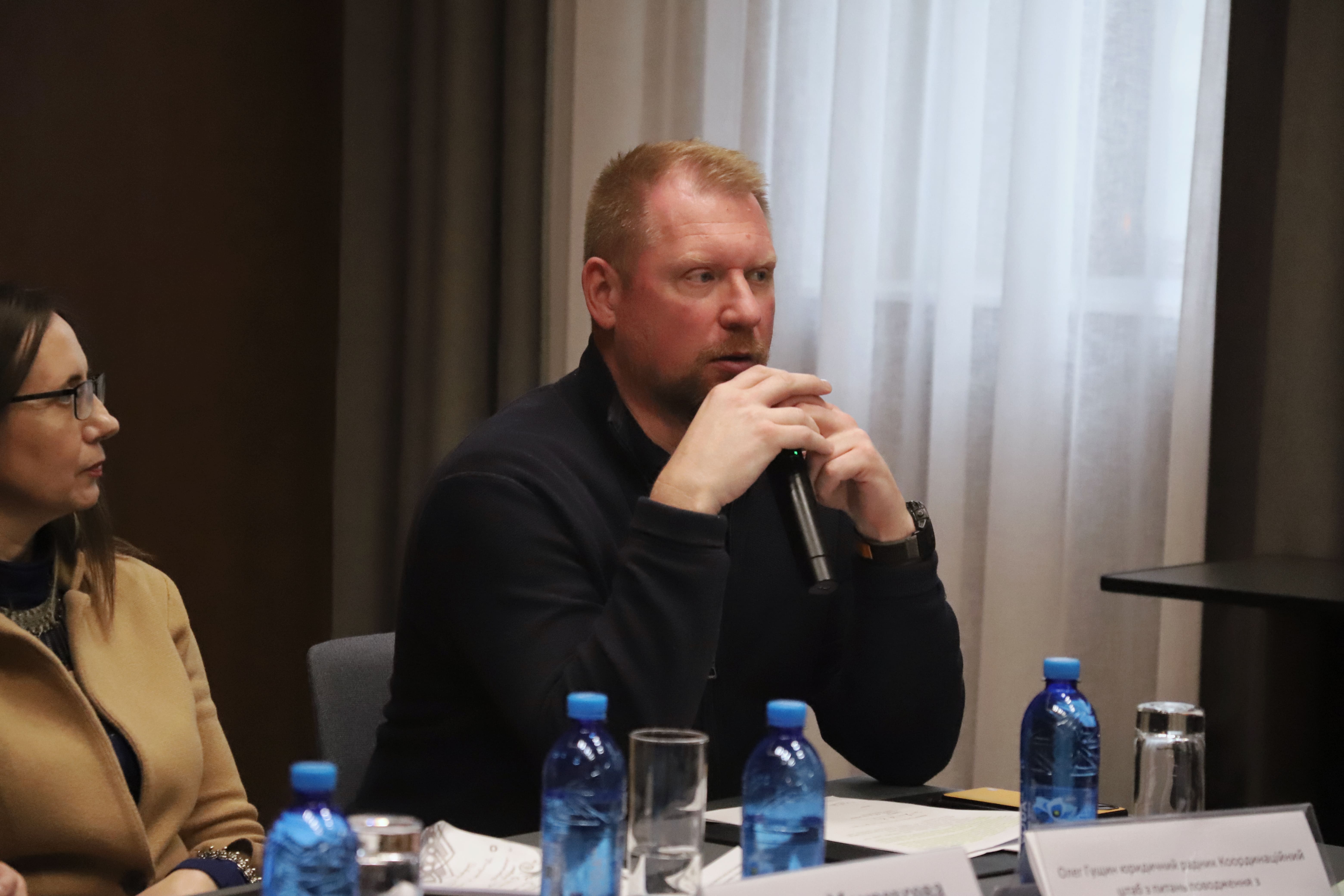
The head of the board of the public organization "Blue Bird" Anna Mokrousova focused on the importance of not only material assistance, but also the formation of the right approach of the state to people who survived captivity. According to Mokrousova, it is necessary to remember that former prisoners of war are not a "category of persons", but citizens of Ukraine who have different experiences, including traumatic ones: "This is not a category, these are citizens of Ukraine who have many different experiences, including the experience of the enemy. And the assistance should not be for 21 days or for a short period, but enough. As much as a specific person needs." Mokrousova emphasized that the task of the state is to create sufficient, not ideal, conditions for returning to a free life: "It should not be ideal. It should be sufficient for a person to remember again how to be free and how to fight for the life of a free person." The head of the NGO "Blue Bird" noted that Ukraine already has a strong regulatory framework, but there is a lack of understanding of how to apply it effectively: "We have a good resource package. There are a lot of regulations and mechanisms, but there is no understanding of how to use them. We do not always know how to transfer a person from one stage of care to another - not as an object, but as a free person who continues his or her path of recovery." She emphasized the need for a systemic approach to primary care: "Primary care should be exclusively state - primarily medical. But if the state is not yet coping, I am ready to take responsibility, come, get involved and do it myself. We have enough legislative documents, but we need to teach people to work with people - so that there are specialists who understand how to communicate with people. And then help from the state will be truly provided."

The discussion highlights that the return of civilians from Russian captivity is not only a medical or social issue, but also a profound psychological challenge. Fear of persecution imposed by Russian propaganda and uncertainty about their own safety upon return significantly complicate the adaptation of former prisoners. The importance of comprehensive support: social, psychological and legal becomes obvious, and the role of case managers and coordinated state and community programs is key to ensuring a safe and gradual return to civilian life. “Yana’s relatives periodically ask me, and when she is returned, will she be put in a basement in Ukraine?” – Oleksandr Nikolayenko, the boyfriend of imprisoned Melitopol journalist Yana Suvorova, gave a concrete example of how fears generated by propaganda affect families and underscored the need for transparent and reliable support mechanisms.
The event was organized by the NGO “Association of Relatives of Kremlin Political Prisoners” with the support of the “Askold and Dir” Foundation, which is administered by ISAR Unity within the framework of the project “Strong Civil Society of Ukraine — a Driver of Reforms and Democracy” funded by Norway and Sweden. The content is the responsibility of the NGO “Association of Relatives of Kremlin Political Prisoners” and does not reflect the views of the governments of Norway, Sweden, or ISAR Unity.